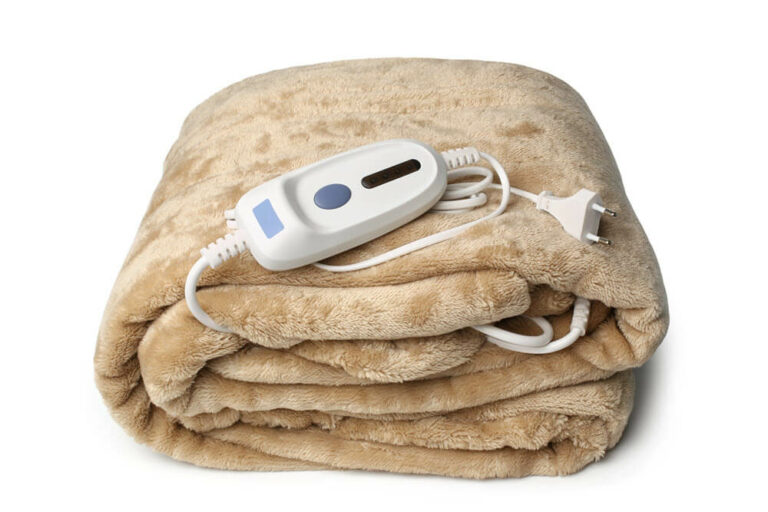When your baby is 7 months old, you start to wonder whether you have a baby or an extraordinarily cute talking turtle. At this age, it’s quite difficult to tell. Your 7-month-old is likely crawling and rolling all over your house, often backward or in circles, speaking delightfully in their own language. Independent and more self-assured than ever, your baby might be able to sit up without assistance, express particular dislikes and likes, and even choose their own toys.
Balancing your 7-month-old’s needs for exploration and movement while making sure they still get enough rest and sleep can be quite challenging. However, never give up. The most important thing is to stick to the nap and bedtime routines.
You may find this article quite helpful for encouraging healthy sleep habits for your little one as they’re getting so close to being one year old. So, let’s start!
How Much Sleep Does My Baby Need at 7 Months of Age?
At this age, your baby is rapidly developing mentally and physically. In order to keep track of their development, your 7-month-old baby must get enough sleep and rest.
Ideally, your baby’s sleep schedule will allow for at least 14 hours of total sleep in a 24 hour period. By 7 months of age, some babies can sleep throughout the entire night, without breastfeeding or formula-feeding, and have two to three daytime naps. Some 7-month-old babies don’t even take three naps, but many may take as much until they reach 9 months of age. Usually, this third nap is very short, approximately 30-45 minutes.
Thus, a detailed answer to your question will be: your 7-month-old should have around 2-3 hours of daytime sleep and around 11-12 hours of sleep during the night. Although, you might find that your baby’s nighttime sleep gets gradually shorter until they drop the third nap in the next month or two. This occurs when your baby needs more time awake in between sleep periods but isn’t quite ready to completely omit the third nap, which can result in a later bedtime and shorter rest at night.
7 Month Old Baby Sleep and Nap Schedule
Every baby is different, right down to their sleep preferences. Therefore, we’ll give you two examples of the sleep and nap schedule of a 7-month-old baby. Of course, you can create a special sleep schedule according to your toddler’s needs, or you can even ask for some help from a pediatric sleep expert to help you with your baby’s sleep schedule.
- An example of a sleep schedule for a 7-month-old baby who is formula-fed, has started sleeping for longer stretches during the night, and assuming they nap three times during the day would look like this:
10:00 – Wake up and formula feeding time
10:15 – Playtime
11:00 – Time to eat solid food
12:30 – Time for an afternoon nap
13:30 – Playtime again
14:00 – Lunchtime
15:00 – Playtime, activities
16:00 – Second short nap
17:00 – Wake up and play
17:45 – Feeding with formula
19:30 – One last nap
20:30 – Storytime
21:45 – Feeding with formula
23:00 – Your baby is tired by now, and it’s time to go to bed. See you in the morning!
- An example of a sleep schedule for a 7-month-old baby who is breastfed and may still wake up during the night for feeds:
8:00 – Waking up and breastfeeding
8:15 – It’s playtime
9:30 – You feel tired, aren’t you? Taking the first nap
11:00 – Playtime, activities
11:45 – It’s time for the second nap
12:30 – Eating time
14:00 – Napping
15:00 – Breastfeeding
15:15 – Where are your toys? It’s time to play
17:00 – What’s cooking? It’s dinner time
17:30 – It’s nap time
18:30 – Your bubbles are ready. It’s time for a bath.
19:30 – Zzzzzz… bedtime
22:00 – Breastfeeding
3:00 – Breastfeeding
8:00 – Wakey, wakey
7 Month Sleep Regression
Basically, sleep regression consists of unexpected disruptions in your 7-month-old sleep that look like they come out of the blue! Your 7-month-old baby suddenly doesn’t want to sleep. Period.
These sleep disruptions appear at predictable times due to the fact that they’re connected with developmental milestones. Pediatricians explain this as a rush of growth in your baby’s brain development that occurs during a developmental milestone, such as your baby learning to crawl or roll, often coexisting with another part of development regressing or slowing down, such as sleeping.
7 Month Old Baby Sleep Problems
As your little one is growing up, they’re practicing their independence and new skills, particularly before going to bed. Here are some sleep problems that can happen at 7 months of age.
Fighting Bedtime
Your 7-month-old baby is becoming more aware of the difference between bedtime and playtime. They’re likely joining you on chores and visiting family and friends at this age and can even have their own regular playdates with other babies. However, even if your little one is having a lot of fun and doesn’t look like they’re tired, you need to stick to your sleep routine because an overtired baby is actually more difficult to get to sleep.
Night Wakings
If your little one is a solid sleeper and suddenly starts waking up in the middle of the night, they might be teething, particularly if there are other symptoms such as pulling the ears or drooling. You can try teething rings, but if they don’t provide relief, talk with your healthcare professional about other options like infant ibuprofen or acetaminophen, which your baby can use after they turn 6 months of age.
Early Waking
For babies at 7 months of age, waking up between 6 a.m. and 7 a.m. is quite normal. However, if the baby is waking up earlier than this and refuses to go to sleep after feeding or diaper changing, they’re getting either too little or too much sleep. You should take a closer look at your baby’s sleep schedule to ensure that your little one gets enough sleep during the daytime or review your baby’s bedtime. For instance, you can try to put your little one to bed an hour later or earlier.
At 7 months of age, it’s common for your baby’s sleep patterns to change a lot.
7 Month Old Sleep Tips
Here are some sleep tips that you might find useful for putting down your 7-month-old baby to sleep easily:
Stick To a Sleep Routine
At 7 months of age, your little one is quite ready to start adapting to a sleep routine. You can develop a custom sleep routine for changing, playing, feeding, and bathing, staying exactly the same every day. This way, you’ll help your baby get used to the sleep routine and fall asleep approximately at the same time every day.
Put Your Baby to Bed While They’re Drowsy but Still Awake
This way, your little one is going to learn to associate their crib with feeling sleepy. This will be very helpful for them to learn how to fall asleep by themselves. Keep in mind to put your baby on their back and put away all obstruction and toys from their bed.
Let Your Little One Settle in by Themselves
At 7 months of age, your little one might still wake up in the middle of the night. If your baby wakes up, give them time to settle down and fall asleep by themselves. If they don’t fall asleep on their own, comfort and reassure your baby (a pacifier usually does the trick), but giving them some time to deal with the issue themselves is a good way to curb separation anxiety early on.
Help Them Understand Nighttime and Daytime
It’s essential to help your little one to distinguish nighttime from daytime. You can keep your home full of natural light during the daytime and dim the lights at night in order to help your baby differentiate between nighttime and daytime. Keep your TV or other screens off when it’s dark in order to decrease the amount of artificial light in your home because this might distract the baby.
Reserve Energetic Activities and Playtime for the Day
At 7 months of age, your little one needs only two to three baby naps during the day, so you need to keep them active. You can do this with a vigorous playtime schedule and partaking in the energetic activity. This way, you’ll stimulate your baby and make sure that they’re tired enough to want to sleep during nighttime.
Can You Sleep Train Your 7 Month Old Baby?
If you and your 7-month-old baby have trouble going to bed, you may find sleep training very helpful. At this age, your little one is developmentally ready to learn how to self-calm and put themselves to sleep, and even your pediatrician will recommend you to try sleep training at this age.
There are several different methods that you can use for sleep training, such as:
- Cry it out. This is when you leave your baby’s room after you’ve placed your 7-month-old baby in the crib, and you don’t return until your little one is asleep.
- The Ferber method. With this method, you check on your baby in increasingly longer periods.
- The chair method. With this method, you sit on a chair in your little one’s room, and you move the chair closer and closer to the door.
After several days, your 7-month-old baby is going to learn how to put themselves to sleep.
Concluding Thoughts
While your baby’s sleeping pattern might continue to experience disruptions at 7 months of age, there’s a lot that you can do, such as trying sleep training, sticking to a consistent sleep routine, or looking for help from a pediatric sleep consultant, in order to make sure that your little one gets enough sleep and rest. After all, your 7-month-old baby is quite busy developing their future sleep habits, and your guidance every step of the way is quite crucial.






